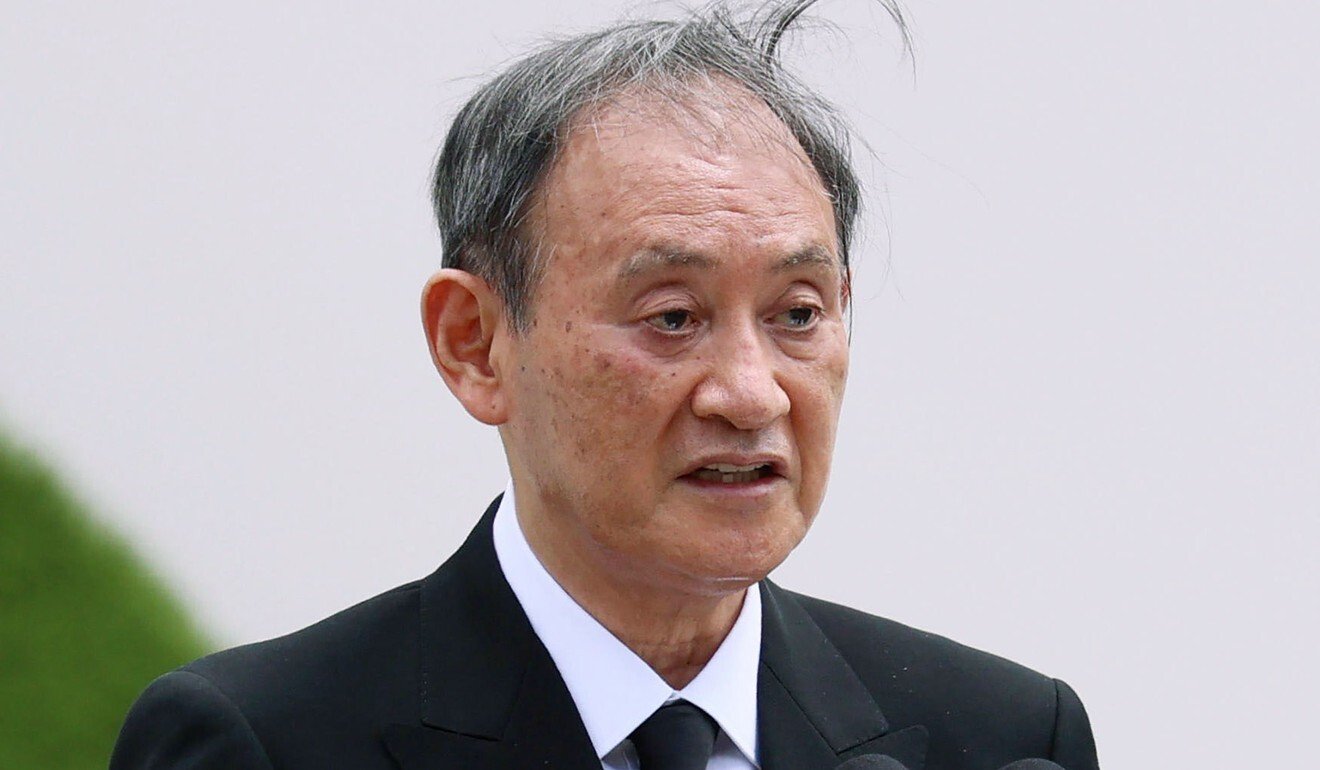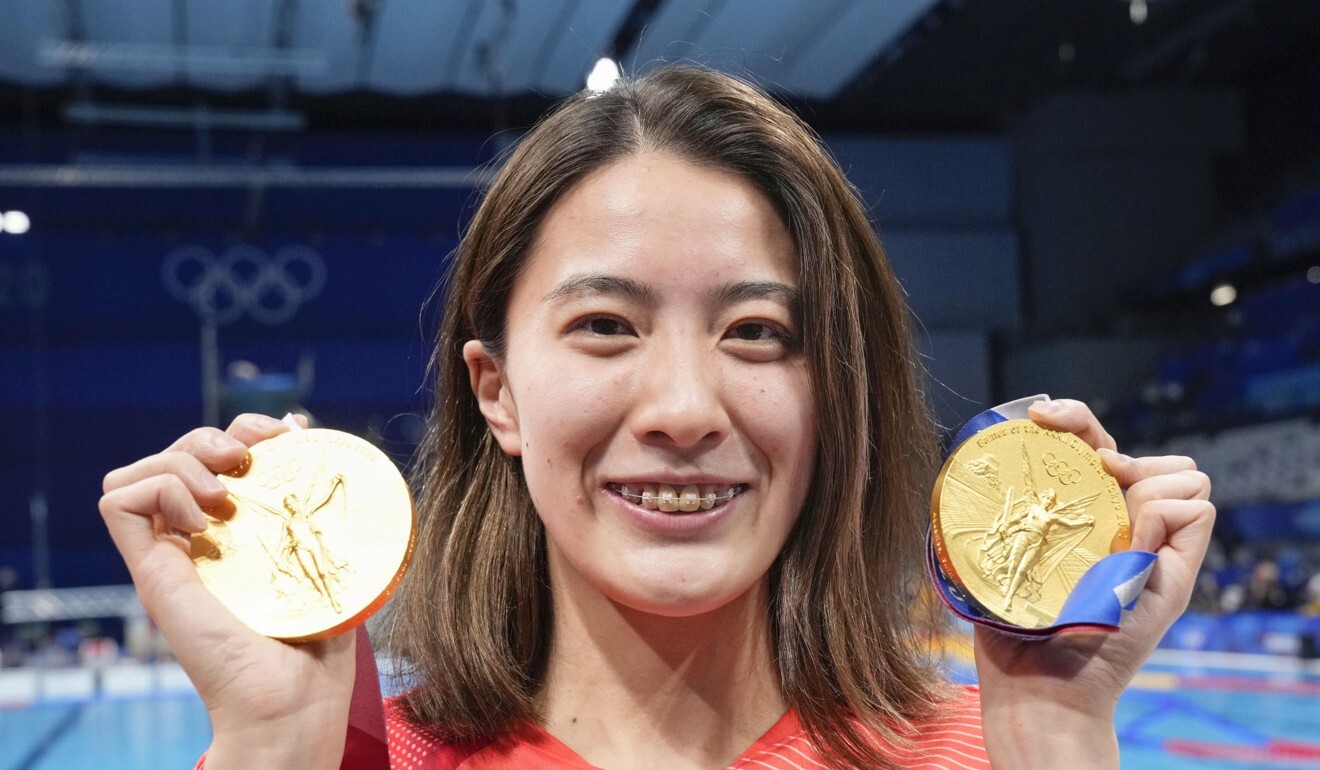
Tokyo Olympics: infection numbers threaten Paralympics as Japan counts cost of Games and Suga watches approval dip
- Public sentiment towards the Games warmed as Japanese athletes claimed record medal hauls but host nation has been left with a US$15 billion bill and a raging pandemic
- Government experts will meet in Tokyo on Monday to discuss the risks faced by tens of thousands of athletes, officials, support staff and media attending the Paralympics
The panel of experts set up by Suga’s government to guide national strategy during the pandemic will meet in Tokyo on Monday to discuss the risks faced by tens of thousands of athletes, officials, support staff and media attending the Paralympics, which open on August 24.
Kazuhiro Tateda, president of the Japan Association of Infectious Diseases and a member of the government’s advisory committee, said the situation has become “critical”.
“It is certainly becoming worse, both in the number of new infections and the spread of the new variant of the illness, but also on the clinical side as there are not enough facilities to treat people,” he said.
“We always said that 4,000 cases a day in Tokyo was going to be a worryingly high figure, in part because it puts so much pressure on the clinical side of the response, but there are some models that predict as many as 10,000 new cases daily in the next two weeks.”
Tateda said the best-case scenario would be for new infections to remain below 5,000 per day for the next week and to then decline.
Officials on Sunday reported 4,066 new cases in Tokyo, up by 1,008 from one week earlier and more than 4,000 for a fifth consecutive day. There are currently 151 people in critical condition.
Nationwide, there were 14,472 new cases on Sunday, down from the record 15,753 the previous day, but total infections have now surged past 1 million. There have been 15,297 casualties after nine more deaths were reported.
“We will be discussing recommendations that the government issue a stronger message to people about changing their behaviour to stop the spread of the virus, but if that cannot be done and we see numbers continuing to rise then our recommendation will be for the Paralympics to be cancelled,” Tateda said.

The more easily transmitted Delta variant of the illness now accounts for more than 90 per cent of all infections, and many Tokyo residents have failed to take precautions, according to the experts.
Although 79 per cent of Tokyo residents have had at least one vaccine shot and about 40 per cent have had two, most of those are elderly citizens and infections are now climbing among younger people in their 40s and 50s.
Coronavirus: Japan hits record cases as it reconsiders ‘isolate at home’ policy
The government’s expert panel issued a series of warnings and recommendations to the government before the recently concluded Olympic Games, not all of which were enacted.
“It’s difficult, we understand that, because these are also political decisions with international repercussions, so all we can do is make our recommendations based on the medical situation,” Tateda said. “We know it is a hard decision for the government. but my personal opinion is that a decision on the Paralympics needs to be taken this week as numbers are still rising and many doctors say the situation they are facing is critical.”

Prime Minister Suga’s political fate may also hinge on the decision and its impact on the pandemic response. An opinion poll conducted by the Asahi newspaper over the weekend indicated only 28 per cent of the public support him, while 60 per cent want him to be replaced.
The success of Japanese athletes at the Olympics – the 27 golds and a total of 58 medals were both records for the host nation – appear to have tempered criticism of the decision to hold the Games despite the pandemic. Suga, despite his unpopularity, may seek to survive by linking his political future with the event’s success.
His term as president of the ruling Liberal Democratic Party (LDP) expires on September 30 and he must call an election before October 21.
Is the zero-Covid approach of China and Japan about saving face?
“I think both Suga and the LDP had pinned their hopes on a successful Olympics combined with the successful roll-out of the vaccines and infection numbers coming down,” said Hiromi Murakami, a professor of political science at the Tokyo campus of Temple University.
“The public has been delighted by the athletes’ performances, but they realise those successes have little to do with the politicians.
“People are still really unhappy at the lack of policies to stop the pandemic over the last 18 months, the vaccine delays and no vision for where we go from here. It has been a failure in pretty much everyone’s eyes, as far as I can tell.”

However, the party remains loyal to Suga and there are no obvious successors, Murakami said, as the potential challengers are “too young, too inexperienced or too unpopular within the party”.
There is a golden opportunity for the opposition to unite but Murakami said they remained too divided to mount a serious challenge.
“People are disappointed and support for the LDP and Suga will decline in the election, but it’s not clear by how much and if that will be enough for the opposition to take advantage,” she said.

